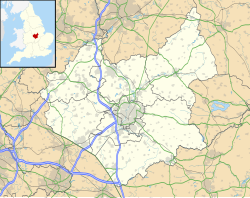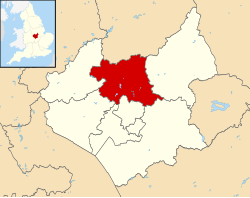Location
The parish has a population of about 1,000, being measured at 1,097 in the 2011 census. [1] It is on the A607 road between Leicester and Melton Mowbray, and is just south of the River Wreake. Nearby places are East Goscote, Thrussington and Rotherby. In 2000, villagers got the approval of building a bypass for Rearsby, work started in August 2003 and by the following year the bypass was open allowing traffic to pass Rearsby without going through the village, the estimated cost of the bypass was £5.9 million. It is a village with a strong community spirit which has been shown through a long-standing publishing of the Rearsby Scene (the local village newspaper).
Post aircraft phase – Rearsby Automotive Limited
Post-war, the company began using its manufacturing skills to supply the re-emerging UK motor industry. Auster Commercial, as this arm of the business was known, changed its name to Rearsby Automotive Ltd in 1966. Auster was now part of Pressed Steel Company which in turn was a division of the British Motor Corporation. In 1968, Auster Aircraft/Rearsby Automotive became part of British Leyland. Aircraft manufacture ceased in 1969.
Rearsby Automotive expanded its sales quickly in order to occupy the whole site, before British Leyland sold off the former aircraft factory and airfield. The automotive business, under the name, Rearsby Components, won business with Ford, Chrysler UK and G.M., British Leyland's competitors. The business became highly profitable. Meanwhile, its parent company went from strife and crisis to crisis throughout the 1970s.
In 1981, British Leyland, as part of its consolidation process, announced to the Rearsby management, the plant was to close. The management team, led by Ivor Vaughan, believed in the future of the business and organised/created the first British Leyland management buy-out (MBO) in 1982, indeed one of the very early UK MBOs. Rearsby Automotive Ltd was resurrected. The business continued to expand winning business with Nissan, Honda, Toyota and VW, designing and developing all the products it supplied for its customer vehicles. This included supplying components in high volume to vehicle plants in Japan. The company also adopted lean manufacturing philosophies. Sales had grown to £29m in 1996. The original MBO team sold the business in 1996 to Adwest group but the business failed in 2003.
The site, now Rearsby Business Park, is still owned by the original MBO team. Following the failure of Adwest to nurture and grow the business and the closure in 2003, the MBO team spent over £2m renovating and improving the buildings and site with the principal aim of re-establishing employment back to Gaddesby Lane. As of 2017, some 200 are employed on site.
For further reading/information on Rearsby Automotive Ltd see:
www.rearsbyautomotive.co.uk
This page is based on this
Wikipedia article Text is available under the
CC BY-SA 4.0 license; additional terms may apply.
Images, videos and audio are available under their respective licenses.












